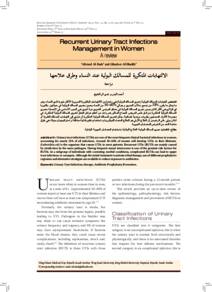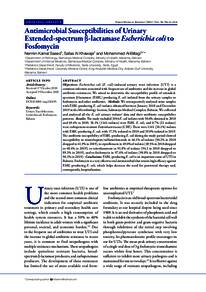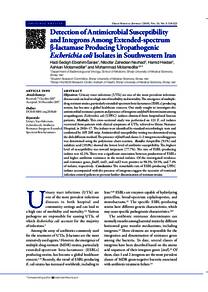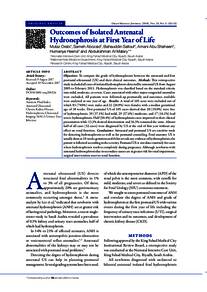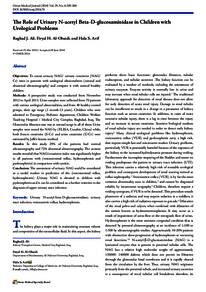Document
Recurrent urinary tract infections management in women : a review.
Contributors
Al-Shaikh, Ghadeer., Author
Other titles
الالتهابات المتكررة للمسالك البولية عند النساء وطرق علاجها : مراجعة
Publisher
College of Medicine, Sultan Qaboos University.
Gregorian
2013-08
Language
English
English abstract
Urinary tract infections (UTIs) are one of the most frequent clinical bacterial infections in women, accounting for nearly 25% of all infections. Around 50–60% of women will develop UTIs in their lifetimes. Escherichia coli is the organism that causes UTIs in most patients. Recurrent UTIs (RUTI) are mainly caused by reinfection by the same pathogen. Having frequent sexual intercourse is one of the greatest risk factors for RUTIs. In a subgroup of individuals with coexisting morbid conditions, complicated RUTIs can lead to upper tract infections or urosepsis. Although the initial treatment is antimicrobial therapy, use of different prophylactic regimens and alternative strategies are available to reduce exposure to antibiotics.
Member of
Resource URL
Citation
Al-Badr, Ahmed, & Al-Shaikh, Ghadeer (2013). Recurrent Urinary Tract Infections Management in Women : a review. Sultan Qaboos University Medical Journal, 13 (3), 359–367.
Arabic abstract
التهابات المسالك البولية (عدوى المسالك البولية) هي واحدة من الالتهابات البكتيرية السريرية الأكثر شيوعا لدى النساء، وهو ما يمثل ما يقرب 25% من جميع حالات العدوى. وحوالي 50-60% من النساء يصبن بعدوى المسالك البولية في حياتهن. بكتيريا أي كولاي هي أكثر كائن يسبب عدوى المسالك البولية في معظم المرضى. العدوى مرة أخرى هي السبب الأساسي في الإصابة بعدوى المسالك البولية المتكررة من قبل نفس المريض. الجماع المتكرر هو واحد من أعظم عوامل الخطر لعدوى المسالك البولية المتكررة. في مجموعة الأفراد المصابين بظروف مرضية إضافية، يمكن لعدوى المسالك البولية المتكررة أن تؤدي إلى التهابات المسالك العلوية أو انتان بولي. على الرغم من أن العلاج الأولي هو العلاج المضاد للميكروبات، استخدام نظم وقائية مختلفة واستراتيجيات بديلة، هي طرق متاحة للحد من التعرض للمضادات الحيوية.
Category
Journal articles

